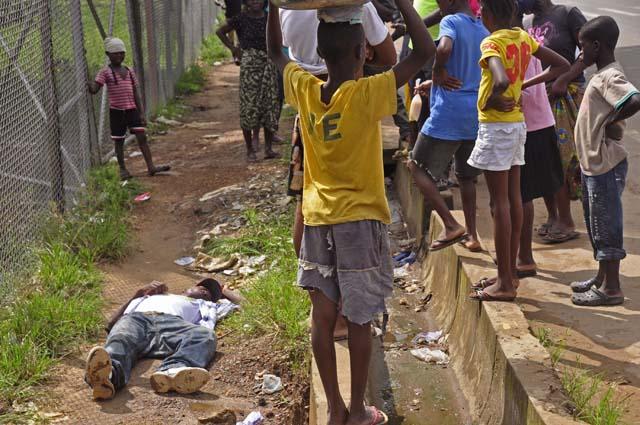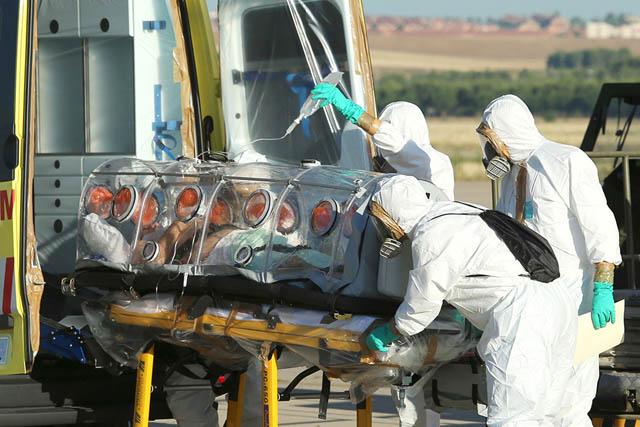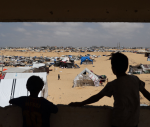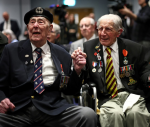You are here
Liberian doctor who received rare Ebola drug ZMapp dies
By Reuters - Aug 25,2014 - Last updated at Aug 25,2014
DAKAR/LONDON — One of three African doctors infected with Ebola and treated with the experimental drug ZMapp has died in Monrovia, Liberian Information Minister Lewis Brown said on Monday.
Liberia, the West African country where Ebola is spreading fastest, received three doses of the rare treatment on August 13. Initially, Liberia said the three doctors, Zukunis Ireland and Abraham Borbor from Liberia and Dr. Aroh Cosmos Izchukwu from Nigeria, were responding well to the treatment, raising optimism about the experimental therapy.
Asked to confirm the death of doctor Borbor, Brown said: "That is correct. He died yesterday."
Two US aid workers who caught Ebola in Liberia were declared free of the virus and released from an Atlanta hospital last week after receiving the same treatment. But a Spanish priest who received ZMapp died.
The drug's US-based manufacturer, Mapp Biopharmaceutical, says limited supplies have already been exhausted and producing more will take time. There are other drugs in the pipeline but all are unproven and have yet to clear even the earliest stage of clinical trials.
UK Ebola victim
The family of a British volunteer nurse repatriated from Sierra Leone after contracting the deadly Ebola virus said on Monday he was in the best place possible for treatment.
William Pooley, 29, is the first Briton to test positive for the haemorrhagic fever that has killed almost 1,500 people, mostly in Sierra Leone, Liberia and Guinea, in the deadliest outbreak of the disease to date.
Pooley was flown home from West Africa on Sunday in a specially adapted Royal Air Force cargo plane and transported to an isolation unit at the Royal Free Hospital in London.
"Will is receiving excellent care at the Royal Free Hospital and we could not ask for him to be in a better place," his family said in a statement, praising the speed at which he was brought home and asking the media to respect their privacy.
"We would like to thank all our family and friends for their best wishes and ask everyone to remember those in other parts of the world suffering with Ebola who do not have access to the same healthcare facilities as Will."
British health officials say strict protective measures have been taken to minimise the risk of transmission while transporting and treating Pooley.
A spokeswoman from Britain's Department of Health said British officials were trying to locate supplies of experimental therapies being used to treat Ebola but any decision to use them would be made by the clinicians and the patient.
Pooley's colleagues praised the bravery of the healthcare worker, who was reported to have been working as a volunteer at a hospice in Sierra Leone's capital Freetown since March before volunteering at an Ebola centre in Kenema five weeks ago.
Gabriel Madiye, executive director of the Shepherd's Hospice in Freetown, said the nurse was aware of the risks of dealing with Ebola patients but was determined to help as other medical staff had left, fearful of catching the virus.
"We consider him a hero. Somebody who is sacrificing to provide care in very difficult circumstances — when our own health workers are running away," Madiye told the BBC.
The hemorrhagic fever has killed at least 1,427 people in the deadliest outbreak of the disease to date. In the week through to August 22, 297 new suspected, probable and confirmed cases of Ebola were reported in Liberia — the largest number of weekly cases since the epidemic began in March, according to a United Nations Children's Fund report.
Ebola can kill up to 90 per cent of those infected though the fatality rate in the current epidemic is around 60 per cent.
Related Articles
Liberia battled on Tuesday to halt the spread of the Ebola disease in its crowded, run-down oceanside capital Monrovia, recording the most new deaths as fatalities from the world's worst outbreak of the deadly virus rose above 1,200.
West African countries Sunday lamented the knock-on effects of their fight against the Ebola epidemic as restrictions snarled transport, causing food shortages and price hikes.
The World Health Organisation authorised the use of experimental drugs in the fight against Ebola on Tuesday as the death toll topped 1,000 and a Spanish priest became the first European to succumb to the latest outbreak of the virus.

















